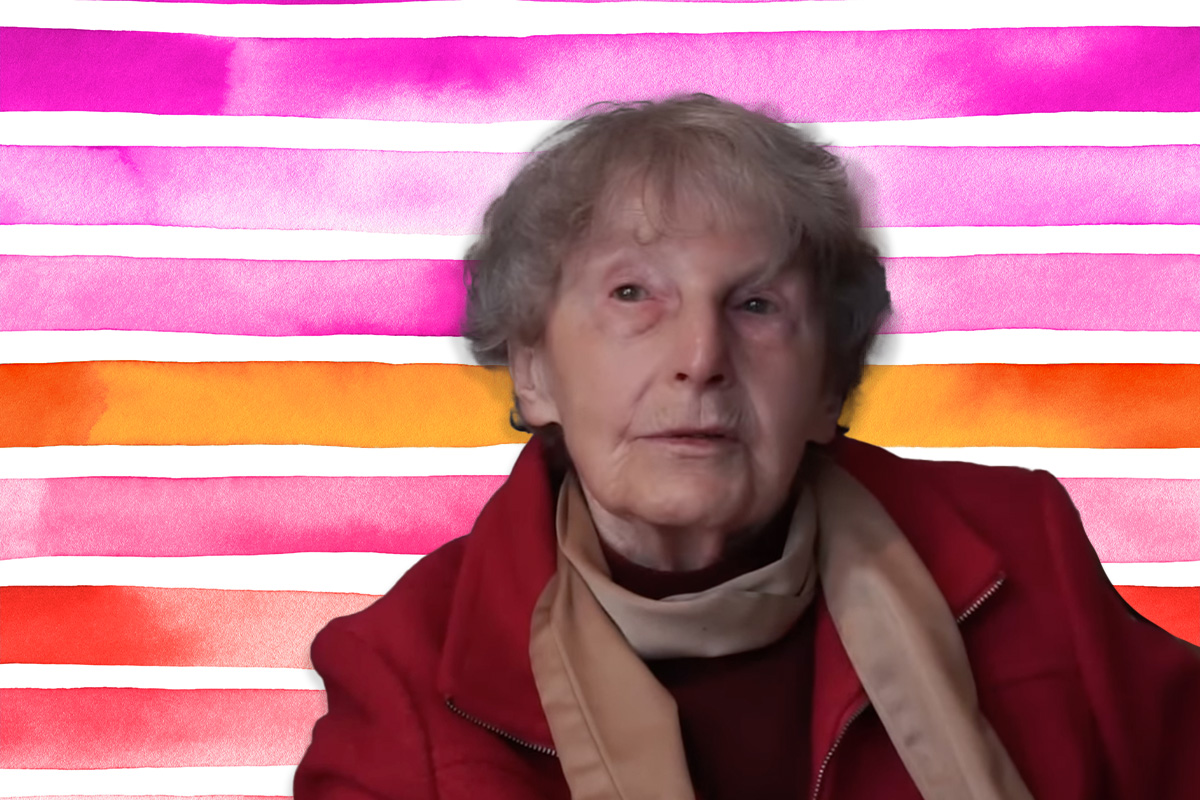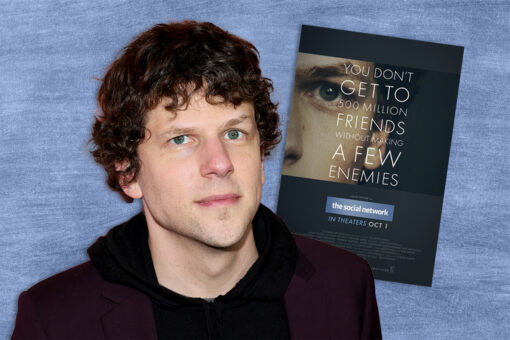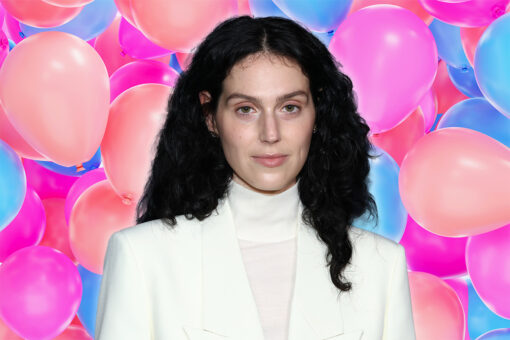On Tuesday, Oct. 10, 2023, 98-year-old Eva Kollisch passed away at her home in Manhattan. She led a remarkable life as a lesbian activist, writer and Holocaust survivor, and I’m going to tell you all about her.
Eva was born on Aug. 17, 1925 in Vienna to (what she described in the Smith College Voices of Feminism Oral History Project in 2004) as “a rather typical bourgeois Jewish Austrian” family. Her mother Margarete was a poet, translator and “very creative woman,” and her father Otto was an architect who built several apartment buildings in Vienna.
Despite this prosperous family and upbringing, Eva became aware of injustice in the world from a very early age, in part because of antisemitism. Starting at the age of 6, Eva was called “a dirty Jew” at school, beaten up and treated unfairly by teachers. “I would look at myself in the mirror and say, ‘There’s nothing wrong with me. I look nice,’ ‘I like myself,’ she recalled to the Smith Feminism Oral History Project. “And I did. There’s nothing wrong with me. I don’t even look very different from them. What is it they see that I don’t see, you know?”
A handful of years later, Hitler and the Nazis annexed Austria and Eva and her family’s lives “had changed, unalterably, in that minute.” She was no longer allowed to attend her regular school and was forced to go to a boarding school for Jewish girls in Vienna. It was there that Eva got her first taste of activism. “We would walk two by two, along with the teacher, and we had to be always very careful because we were Jewish children. But when the teacher wasn’t looking, because they trusted us, and we’d walk through this park, we’d quickly sit down on the bench, even though that bench was marked, ‘Juden verboten,’ ‘no Jews permitted,'” she explained, once again to the Smith Feminism Oral History Project.
She went on, “We would just sit down, put our little behinds on that bench and sit there for a minute. It made us feel very rebellious. Now it sounds very trivial but you know, actually, we could have gotten into a lot of trouble. It was defiance and refusing to be treated as some unspeakable kind of person who’s not allowed to sit on a bench. So that’s activism.”
Quickly, however, Eva’s parents realized that they needed to get their family out of Austria. In 1939 they put Eva and her brothers on the Kindertransport to England. Luckily, Eva’s parents also managed to get out of Europe and they were all reunited in New York by 1940. (Most other children on the Kindertransport weren’t so fortunate; 90% of them would lose their parents in the Holocaust.) Eva’s family made their new life on Staten Island. Eva’s mother taught English to refugees for 25 cents an hour and worked to become a masseuse and her father was a door-to-door salesman, selling vacuum cleaners. Eva attended and graduated from Curtis High School. Here, Eva would once again get involved with activism, joining the Trotskyist Workers Party and learning about Marxism and labor organizing.
After nearly four years with the Workers Party, and a brief stint working with them in Detroit, Eva tired of the group’s misogynistic male leaders. She left the Workers Party in 1946, divorcing her first husband whom she had met in the group, and decided to go back to school. (You can learn all about this part of her life in the “Exile” podcast, narrated by Mandy Patinkin!) From 1946-1951, Eva attended Brooklyn College, receiving her Bachelor’s degree in German literature in 1951. Around this time, she married her second husband, Gert Berliner, a German-Jewish abstract expressionist painter and fellow Holocaust survivor. Together, they helped found and operate Cafe Rienzi in New York’s Greenwich Village, a European-inspired coffee house frequented by artists and intellectuals like Allen Ginsberg, James Baldwin, Jack Kerouac and Richard Wright. They also had their only child, Uri, in 1956.
In 1959, the couple separated and in 1963, Eva earned a master’s in German from Columbia University. That same year, she was hired as a literature professor at Sarah Lawrence College. During her 30 years at Sarah Lawrence, Eva accomplished one of her great achievements of the many in her life: she, along with professors Gerda Lerner, Joan Kelly and Sherry Ortner, founded one of the first women’s studies courses ever taught.
“It was questioned by some of my colleagues, my old-fashioned colleagues, very much. Why do women have to have a special history? Aren’t they part of humanity? What are you really saying? You mean, you’re not gonna read the great works of Shakespeare, or Dante?” Eva recalled later. “Yes, we are, but right now, we have this. This is our subject. It met with a lot of animosity. And finally, as you know, it prevailed and women’s studies now is practiced there and everywhere.”
It was during this time that Eva also began having relationships with other women and understood herself to be a lesbian. (She even was a love of Susan Sontag’s!) In 1986, she met Jewish poet and labor activist Naomi Replansky at a Gay Women’s Alternative poetry reading. “It just feels right and natural and I love Naomi, and so in a certain sense, it is very simple,” Eva said of Naomi in 2004, adding, “But I was quite fortunate, I think, that I wasn’t a lesbian, practicing, or even fantasizing too much, at a time when it was so taboo that you had to hide completely, or had to feel shame, or you had to go meet in bars.” The couple were married in 2009, and in 2016 they were honored with the Clara Lemlich Social Activist Award. Eva and Naomi were together until Naomi passed away earlier this year.
In her lifetime, Eva wrote two memoirs — “Girl in Movement” in 2000 and “The Ground Under My Feet” in 2014 — both detailing her experience as a Jewish refugee and Holocaust survivor and her participation in the feminist and anti-war movements. (Eva was arrested twice protesting the Vietnam war and worked with the Women in Black movement and the 1983 Seneca Women’s Encampment protest.)
In this uncertain and sad time, may her memory be the biggest, queerest and most peaceful blessing and revolution.



